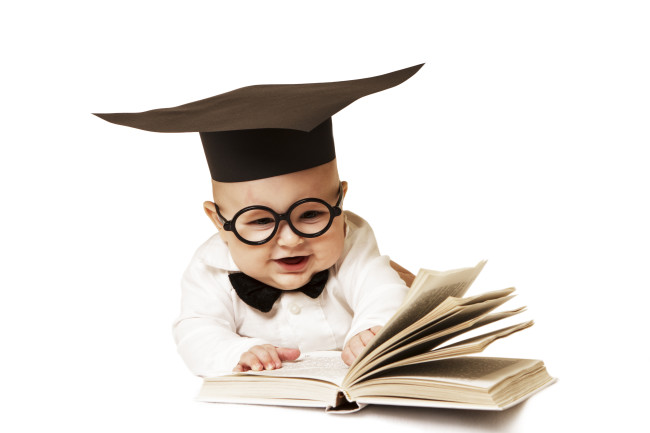Some parents want to get a jump-start on their children’s education, using DVDs and other materials to teach infants how to read. However, researchers at New York University’s Steinhardt School of Culture, Education, and Human Development have found such attempts are in vain.
Educational materials used to determine ability
For the study, published in the Journal of Educational Psychology, researchers examined 117 babies, aged nine to 18 months.
One group was provided with educational materials in the form of a baby media product, including DVDs, word and picture flashcards, and flip books to be used daily over a seven-month period.
The other group received no materials. Assorted tests were used to determine the babies’ ability to “recognize letter names, letter sounds, vocabulary, words identified on sight, and comprehension.”
Products shown to have no effect
The end of the experiment showed no difference between the group that had the materials and the one that didn’t.
Although educational DVDs and similar products were shown to have virtually no effect, they do seem to have an effect on parents.
Parents have confidence in products
“It’s clear that parents have great confidence in the impact of these products on their children,” says lead study author Susan Neuman, a professor in NYU Steinhardt’s Department of Teaching and Learning. “However, our study indicates this sentiment is misplaced.”
Used to encourage cognitive development
While babies exposed to educational DVDs may not to learn to read any faster, it’s still possible to encourage cognitive development. A 2012 study by researchers at North Dakota State University and Texas A&M found that babies who sit up — either alone or with assistance — will reap the most reward from educational toys and videos.
(AFP Relaxnews)
Latest posts by Contributor (see all)
- Video: How much sleep does your baby need? - July 1, 2014
- Music and dance may help your baby’s social skills - July 1, 2014
- Bio-oil’s Marks of Change initiative - July 1, 2014






 Saving...
Saving...